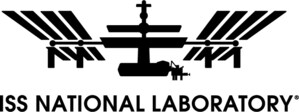Register now to ask questions of researchers during the webinar
CAPE CANAVERAL, Fla., Oct. 18, 2024 /PRNewswire/ -- The International Space Station (ISS) National Laboratory and NASA will host a webinar to discuss upcoming research and technology development projects launching on SpaceX's 31st Commercial Resupply Services (CRS) mission for NASA to the orbiting outpost. This webinar will showcase how research on the space station is enabling innovation, benefiting humanity, and driving a sustainable market economy in low Earth orbit. The webinar is scheduled to take place Wednesday, October 23 at 1 p.m. EDT.
Investigations on this mission are slated to launch to the space station onboard a SpaceX Dragon spacecraft in the coming weeks from Launch Complex 39A at NASA's Kennedy Space Center in Florida.
During the webinar, Kristin Kopperud, ISS National Lab science program director, and Meghan Everett, NASA's deputy chief scientist for the International Space Station Program, will provide programmatic insights. They will then be joined by the following expected speakers to highlight specific research investigations on the mission:
- Agata Zupanska, research scientist at the SETI Institute: Zupanska will provide an overview of the NASA-sponsored ARTEMOSS project, which will examine whether Antarctic moss recovers from the impacts of cosmic radiation and microgravity, and if so, how. Results could inform the development of plants that are tolerant of conditions in deep space for use on future exploration missions.
- Leonardo Barilaro, senior lecturer at the Malta College of Arts, Science and Technology: As the lead investigator for the ISS National Lab-sponsored ASTROBEAT project, Barilaro will discuss his team's plans to use cold welding to apply metal patches to samples that simulate a spacecraft hull damaged from a hypervelocity impact. The investigation will be done in a Voyager Space Nanolab. Cold welding is a process that bonds similar metallic materials using force or pressure instead of heat. The technology could one day be used to safely repair space platforms and ensure their long-term viability, which would help to address the growing concern of space debris.
- Prashant Nagpal, co-founder and chief operating officer for Sachi Bio: Nagpal will provide an overview of the ISS National Lab-sponsored Rapid Low-Cost Drug Delivery in Space project. This investigation will test cutting-edge RNA-therapeutic Nanoligomer™ technology using brain organoids created using cells from healthy adults and patients with Alzheimer's, Parkinson's, and dementia. Utilizing Space Tango CubeLabs™, this research aims to advance preclinical therapies to treat neuromuscular and neurodegenerative diseases.
- John Barnett, president and chief science officer for ExesaLibero Pharma: In his overview, Barnett will highlight how and why ExesaLibero aims to leverage microgravity to crystallize proteins associated with its novel drug, known as ELP-004, which prevents excess bone removal associated with numerous diseases—most notably rheumatoid arthritis. This ISS National Lab-sponsored project, which will use Redwire Space's Pharmaceutical In-space Laboratory, could lead to enhancements in the ELP-004 therapeutic.
- Jeffrey Newmark, research astrophysicist for NASA's Goddard Spaceflight Center: Newmark will discuss the COronal Diagnostic EXperiment (CODEX), which uses a solar coronagraph to examine solar wind and how it forms. A coronagraph blocks out bright light from the sun, revealing details in its outer atmosphere, or corona. Data from this investigation could help scientists understand the heating and acceleration of solar wind and provide insight into the source of the energy that generates it.
The webinar will be available on Zoom for media. Members of the media who would like to participate must register for Zoom access no later than one hour in advance.
The public can participate by submitting questions before the webinar using #ISSNationalLab on social media. Following the webinar, a recording will be available on the ISS National Lab YouTube channel. Additional information about ISS National Lab-sponsored projects on this mission will be made available to the media and public in the coming days.
Join us to learn more about the exciting investigations heading to the space station to advance science and benefit humanity.
To download a high-resolution image for this release, click here.
About the International Space Station (ISS) National Laboratory:
The International Space Station (ISS) is a one-of-a-kind laboratory that enables research and technology development not possible on Earth. As a public service enterprise, the ISS National Laboratory® allows researchers to leverage this multiuser facility to improve quality of life on Earth, mature space-based business models, advance science literacy in the future workforce, and expand a sustainable and scalable market in low Earth orbit. Through this orbiting national laboratory, research resources on the ISS are available to support non-NASA science, technology, and education initiatives from U.S. government agencies, academic institutions, and the private sector. The Center for the Advancement of Science in Space™ (CASIS™) manages the ISS National Lab, under Cooperative Agreement with NASA, facilitating access to its permanent microgravity research environment, a powerful vantage point in low Earth orbit, and the extreme and varied conditions of space. To learn more about the ISS National Lab, visit our website.
As a 501(c)(3) nonprofit organization, CASIS accepts corporate and individual donations to help advance science in space for the benefit of humanity. For more information, visit our donations page.
Media Contact: |
Patrick O'Neill |
904-806-0035 |
|
International Space Station (ISS) National Laboratory |
Managed by the Center for the Advancement of Science in Space, Inc. (CASIS) |
6905 N. Wickham Rd., Suite 500, Melbourne, FL 32940 • 321.253.5101 • www.ISSNationalLab.org |
SOURCE International Space Station National Lab

WANT YOUR COMPANY'S NEWS FEATURED ON PRNEWSWIRE.COM?
Newsrooms &
Influencers
Digital Media
Outlets
Journalists
Opted In





Share this article